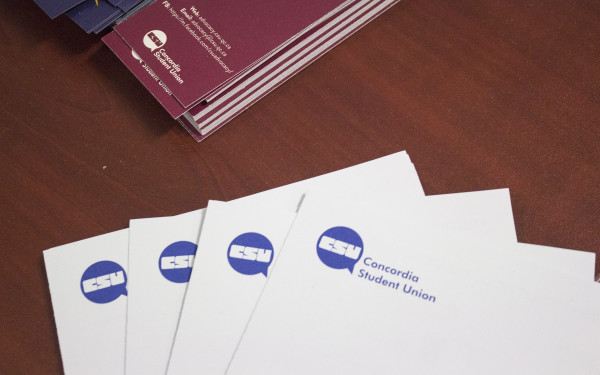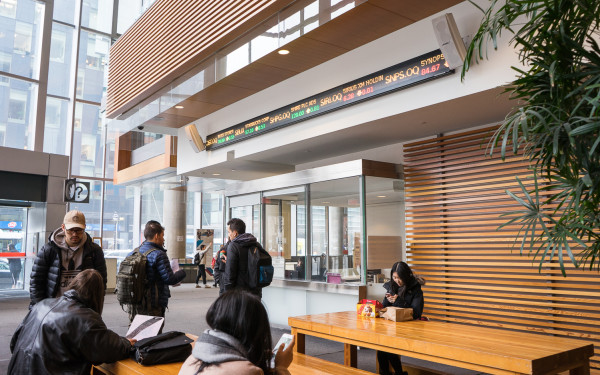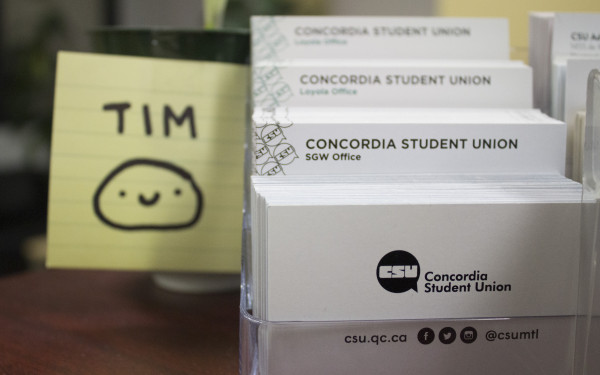Editorial: Don’t Hold Racism Consultations for Nothing
The CSU and Concordia Need to Take More Action, Sooner
It’s consultation season at Concordia University.
While lately consultations, congresses, and task forces around sexual violence have taken up the most headline space on our site and in mainstream media, the Concordia Student Union has also been soliciting student input on racism in the classroom.
Racism, and the administration’s ambivalence towards it, has been a simmering issue at Concordia for a very long time. The 1969 Computer Riots, during which students occupied the ninth floor of the Hall Building, was in response to mishandled racism allegations.
Today, professors still spout racist trash without repercussion. Sometimes it makes the news, like that international business professor at JMSB who made racist remarks Black people, or like in the emails published in our February magazine on race.
So these consultations are good. The more information the better. The more discussion the better. But those discussions have to accomplish something.
Incidents like the ones mentioned above are what triggered the CSU’s new consultations on racism in the classroom. They’re spaces where people are able to share, to safely disclose information and experiences. To get all of the details that don’t always come through in course evaluations, where things get sanitized and paraphrased and selected.
Providing an open platform can get around other systemic obstacles within the school. For example, when students came forward proposing a Black Studies minor program, the admin wasn’t willing to entertain the idea, saying “there wasn’t enough interest.” Maybe these consultations will prove that that’s not the case.
Last January, the university’s Senate approved an equity and diversity action plan for hiring Canada Research Chairs, a federal program to recognize excellence in academics. The document suggests better training for the people charged with hiring faculty, to prevent unconscious bias and discrimination. Most of the document focuses on improving diversity to meet government requirements among the Canada Research Chairs, which is only for a couple dozen positions at Concordia.
Neither the diversity officer or the action plan amount to immediate change, which is really what’s needed to eradicate the environment that allows expressions of racism and ignorance to pass as normal.
Which brings us back to those CSU consultations. Using the experiences of students encountering racism in their academic lives as a guide for action would improve the lives of students in more concrete ways than by diversifying a group of elite researchers.
So the CSU has a serious responsibility by taking on these consultations to enact real action with the information they’re gathering, since the school looks like it’s going in a different direction with its approach.
One of the outcomes from the Feb. 28 congress on sexual violence was a proposal, to be sent to the university, that teachers require consent and sensitivity training. The school’s response was that the new provincial Bill 151 already mandates this for universities, and the school will comply accordingly.
The CSU should be making more serious demands of the school than asking them to do things they’re already mandated to be doing. And the CSU itself should be taking action too—we know they can.
The creation of the CSU BIPOC Committee, set up to provide funding for projects by Black, Indigenous, and people of colour, for example, shows how the CSU can concretely empower marginalized communities on campus.
Yes, it’s a great idea to get more information about a problem in order to find the best possible solutions, but the school is doing its own thing. So to have these valuable testimonies end up only informing lukewarm policy changes would be a tragic waste.






